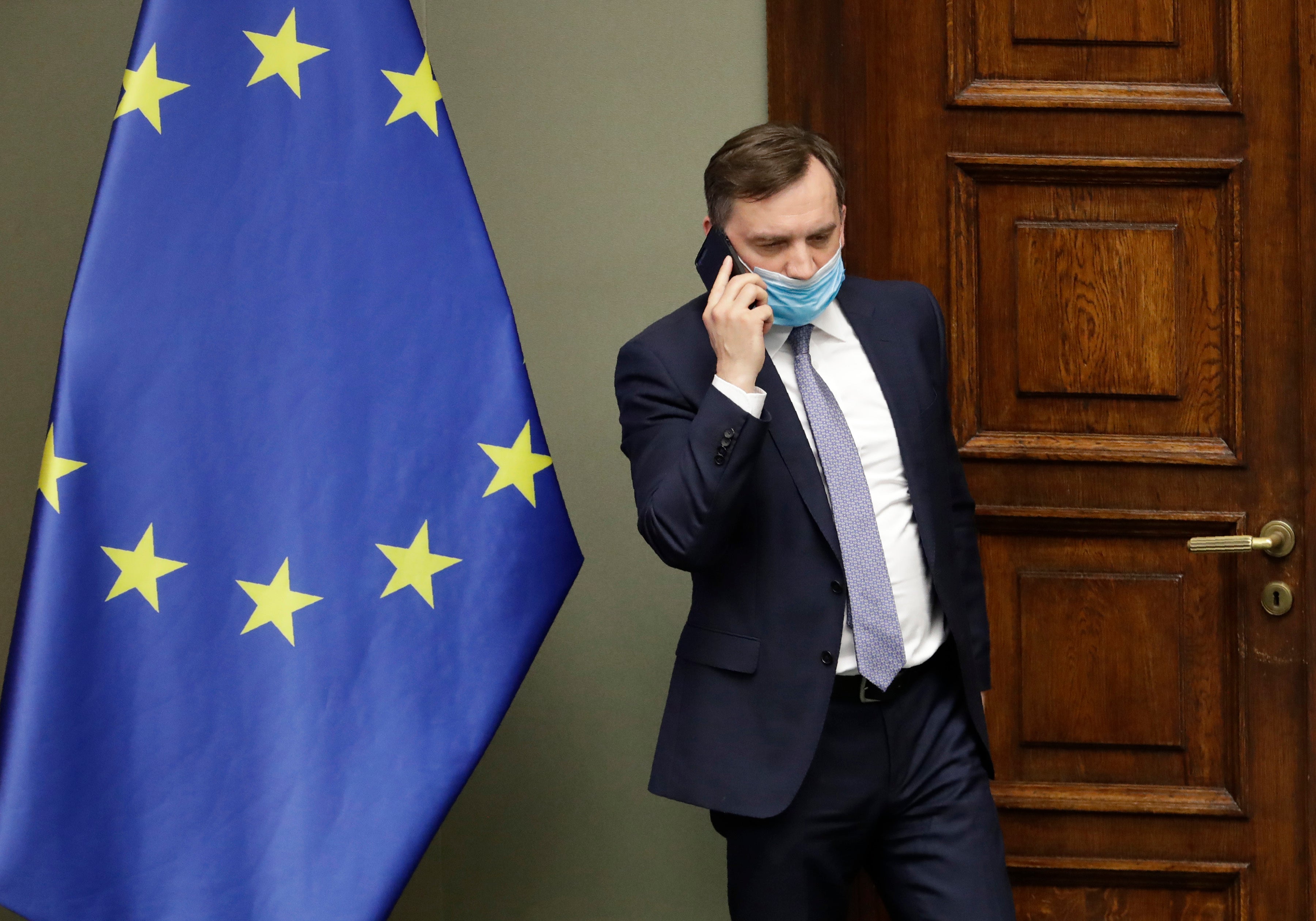Poland's divisive justice minister to face confidence vote
Poland’s justice minister is due to face a confidence vote in parliament

Your support helps us to tell the story
From reproductive rights to climate change to Big Tech, The Independent is on the ground when the story is developing. Whether it's investigating the financials of Elon Musk's pro-Trump PAC or producing our latest documentary, 'The A Word', which shines a light on the American women fighting for reproductive rights, we know how important it is to parse out the facts from the messaging.
At such a critical moment in US history, we need reporters on the ground. Your donation allows us to keep sending journalists to speak to both sides of the story.
The Independent is trusted by Americans across the entire political spectrum. And unlike many other quality news outlets, we choose not to lock Americans out of our reporting and analysis with paywalls. We believe quality journalism should be available to everyone, paid for by those who can afford it.
Your support makes all the difference.Poland’s justice minister, the author of controversial judicial changes that have led the European Union to block billions of euros to the Central European country, is due to face a confidence vote in parliament on Tuesday.
Opposition lawmakers called for the vote on Justice Minister Zbigniew Ziobro, arguing that he poses a threat to Poland's democratic values, its EU funding and ultimately its EU membership itself.
The opposition motion argues that the policies of Ziobro, who is also the nation's prosecutor general, “have taken on an especially harmful character."
His policies have “de-formed the justice system in a way that limits human rights and has become the reason why Poles are still not receiving billions of euros of European Union funds,” the motion says.
To unseat Ziobro would require mustering a majority of 231 votes in the 460-member lower house. Ziobro has survived previous such motions.
Ziobro is the head of a small junior partner in the ruling right-wing coalition, and his party's votes have allowed Law and Justice, led by Jaroslaw Kaczynski, to pass most of its legislation since 2015.
Yet Ziobro's policies have created tensions within the coalition, especially with Prime Minister Mateusz Morawiecki, who is seeking to urgently unblock the EU pandemic recovery funds for Poland. The money is badly needed amid a widening budget gap, inflation of over 17% and huge spending on social programs as well as on defense, in the face of war in neighbouring Ukraine.
Law and Justice lawmakers are ultimately expected to back him in order to maintain the coalition's dominance in the Sejm, the lower house of parliament, where it now has 228 votes.
Through his decades in Poland’s politics, the 52-year-old Ziobro has earned a reputation as a hard-line nationalist and EU-sceptic.
He has been the author and driving force behind a number of laws that have reorganized the judicial system in a way that puts the courts and other judicial bodies under government control. They have set Poland on a collision course with the EU and have triggered large protests at home.
Ziobro and the government have insisted that the changes were necessary and were meant to remove the last vestiges of the communist-era order in the court system. He has also lashed out at the EU for withholding funding over rule-of-law issues, saying its is overstepping its rights laid out in the 27-member bloc's treaties.
In 2019, a deputy to Ziobro resigned over allegations that he encouraged a social media hate campaign against judges who criticized the government.
In another case, Poland’s ties with the U.S. and Israel were strained by legislation written by the Justice Ministry under Ziobro that criminalized statements that falsely blame Poles for Nazi Germany’s crimes in the Holocaust. The Holocaust speech law was viewed as an attempt to stifle historical research and debate and was revised under international pressure.